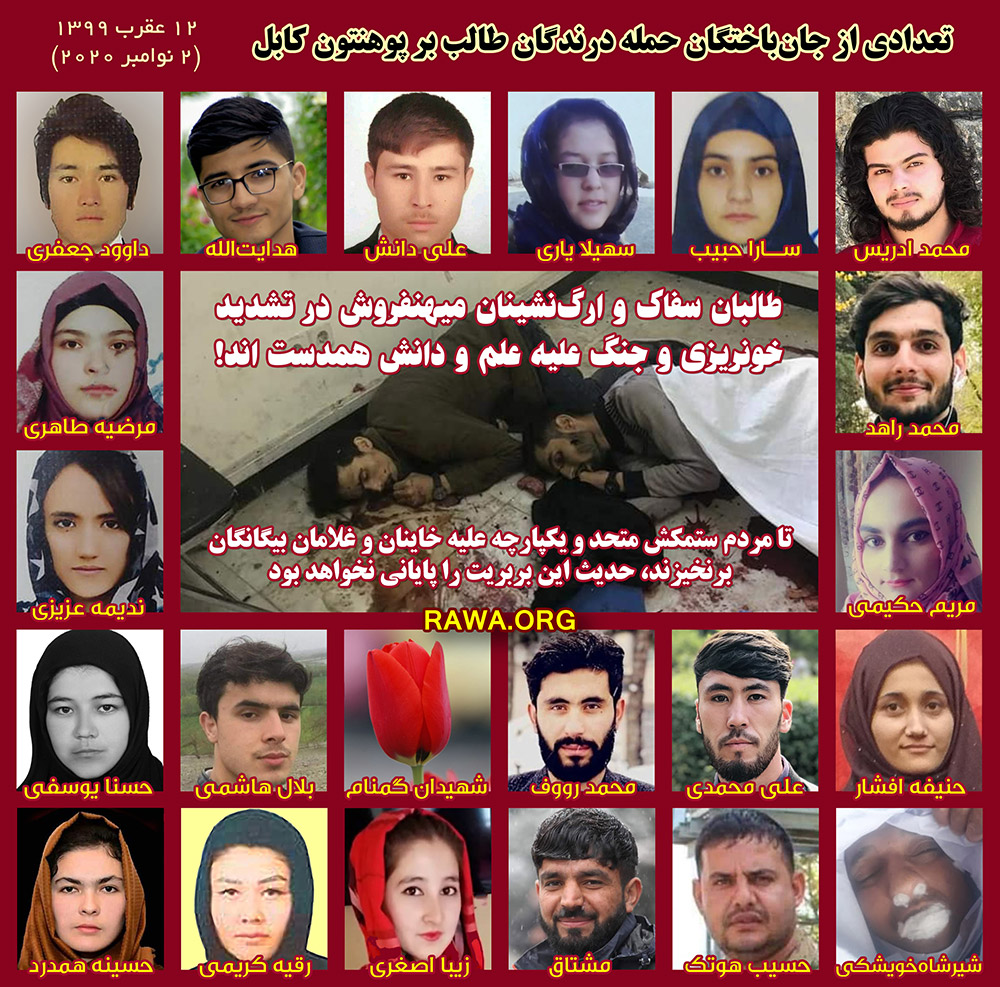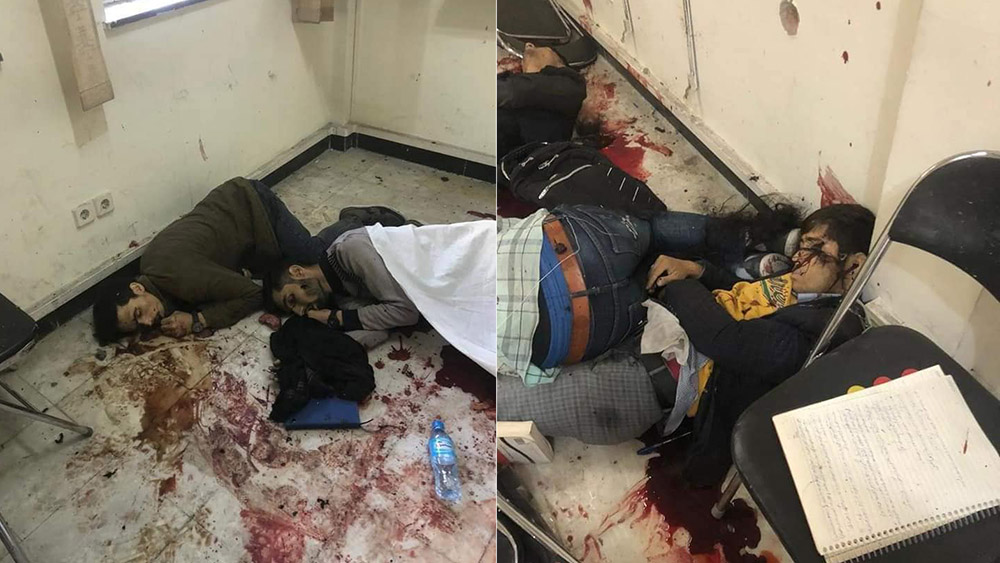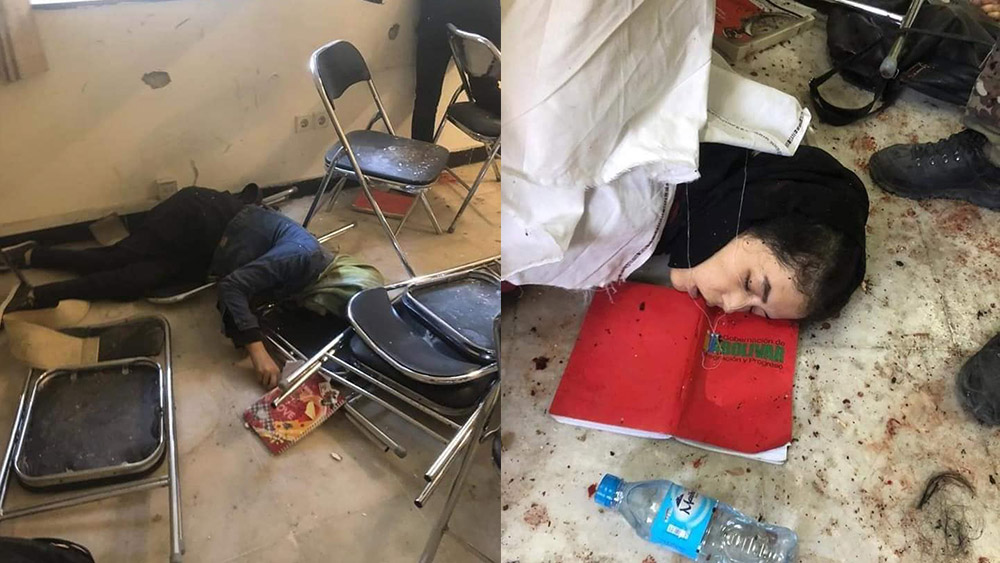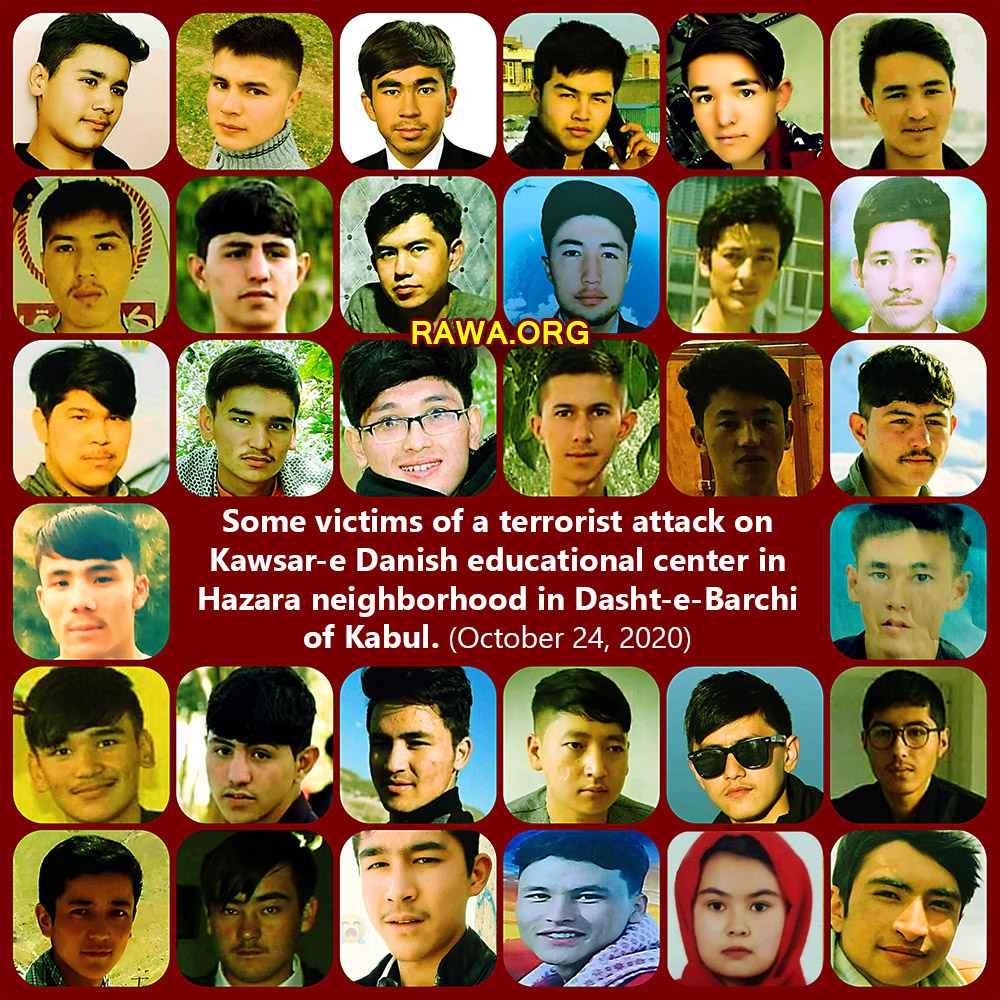By Michael Safi in Beirut and Akhtar Mohammad Makoii in Herat
At least 22 people were killed and 22 wounded after Islamic State-affiliated gunmen stormed Kabul University as it was hosting a book fair attended by Iran’s ambassador to Afghanistan, taking hostages and fighting gun battles with security forces for more than five hours.

RAWANews: Victims of Kabul University terror attack collected by RAWA.
The Afghan government has declared Tuesday a national day of mourning following the attack. Three attackers shot at fleeing students and gunned down others in their classrooms in what was the second assault on an educational facility in the country in recent weeks. The gunmen were shot dead by Afghan security forces, authorities said.
On Monday evening, Isis took responsibility for the attack, claiming it had targeted a “graduation gathering for judges and investigators of the apostate Afghan government”. It named two men as responsible.

RAWA News: At least 22 people were killed and 22 wounded in the terrorist attack.
The attack began with an explosion at the gates of the university just after 11am on Monday that sent hundreds of students fleeing but left many others trapped inside. Photos shared by a senior government official showed students lying dead in classrooms, some next to their books. One student appeared to have been shot as they were climbing out of a window.
Ahmad Samim, who attends the university, told journalists he saw militants armed with pistols and Kalashnikov assault rifles firing at the school, the country’s oldest with about 22,000 students. He said the attack happened at the university’s eastern side, which houses its law and journalism faculty.

RAWA News: Some of the victims of where young girls.
“God give patience, my classmates martyred and wounded in front of my eyes, and I am taken hostage,” wrote a student, Qaseem Kohestani, on Facebook.
Hours after security forces killed the attackers, relatives of students inside were still waiting for news of their loved ones. “I’m calling my son since the attack started, his phone rings but no answer,” one man told local television. “He just sent me a message in the very first minutes saying he was in a bad place and could not answer.”
Isis’s Afghan affiliate is strongest in the provinces of Nangarhar and Kunar but still have the ability to carry out high-profile attacks in Kabul including an assault on a maternity ward in May. They are adversaries of the Taliban, which has received limited US support in its campaign against the group in Nangarhar, cooperation that US military leaders have said they hope will expand if a peace deal with the Afghan government is struck.
The Islamic State in Khorasan Province in Afghanistan is strongest in the strategically important provinces of Nangarhar and Kunar. However, it still retains the capability to conduct spectacular attacks with near impunity in the Afghan capital, as demonstrated by the deadly attack on a Kabul maternity ward in May. ISKP has also experienced recent setbacks, including the killing of its top judge, Abdullah Orakzai.

RAWA News: The three attackers killed 22 students.
It is unclear whether Iran’s top diplomat in Afghanistan was the target of Monday’s attack, although Tehran’s envoys have been targeted previously in attacks that nearly sparked a war between the two countries. In 1998, Iran held the Taliban responsible for the deaths of nine Iranian diplomats who were working in its consulate in northern Afghanistan and sent reinforcements to the 580-mile-long border the countries share.
Schools have been targeted for attacks in the past. Last year, a bomb outside Kabul University’s gates killed eight people. In 2016, gunmen attacked the American University in Kabul, killing 13.
Violence has been relentless in Afghanistan, even as the Taliban and a government-appointed negotiating team discuss the peace agreement to end more than four decades of war in the country. Progress in the talks in Doha has been painfully slow and despite repeated demands for a reduction in violence, it has continued unabated.
A US deal with the Taliban in February set the stage for the peace talks. The agreement also allows for the withdrawal of US and Nato troops from Afghanistan.
Also on Monday, a vehicle hit a roadside mine in the country’s southern Helmand province, killing at least seven people, most of them women and children, the provincial governor’s spokesman, Omer Zwak, said.

RAWANews: A deadly explosion struck a tutoring center in Kabul on Oct.24,2020. Media reported killing of 24 young students in the explosion, but RAWA has so far collected photos of 36 victims.



